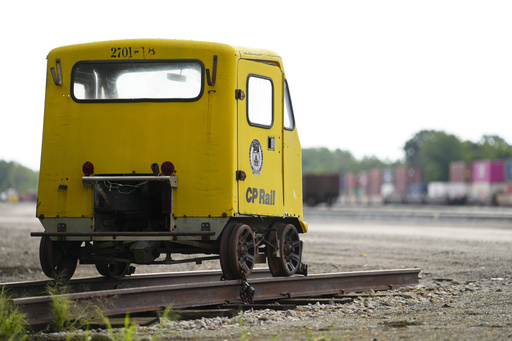Businesses and consumers in Canada and the U.S. are facing potential economic consequences following a complete halt of major freight railroads in Canada due to a contract dispute with their workers. Canadian National and CPKC railroads locked out their employees after the deadline passed without new agreements with the Teamsters Canada Rail Conference, representing about 10,000 engineers, conductors, and dispatchers. The shutdown has halted all rail traffic in Canada and shipments crossing the U.S. border, impacting various industries reliant on rail transportation for their raw materials and products.
Billions of dollars in goods move monthly between the two countries via rail, with many companies heavily relying on this mode of transportation. The railroads have offered to end the lockout if the union agrees to binding arbitration, prompting government officials to discuss solutions urgently. While some business groups advocate for government intervention, Prime Minister Justin Trudeau opted against immediate arbitration, fearing a negative impact on labor relations.
The union president blamed the railroads for the lockout, accusing them of pressuring the government for binding arbitration. Ontario Premier Doug Ford called for both parties to return to negotiations promptly to reach a fair agreement. The ongoing shutdown is already affecting workers, transit users, and businesses, with concerns that further disruptions could lead to job losses and economic hardship.
Although most businesses may withstand a brief disruption due to stocked supplies, prolonged halts could lead to challenges in supply chains. Chemcial businesses, food distributors, and the auto industry are among the sectors at immediate risk due to the stoppage. Pressure for government intervention is expected to rise as the lockout persists, further impacting the interconnected economy.
The negotiations revolve around scheduling issues and worker fatigue concerns, with proposed shifts to an hourly pay system from the current mileage-based pay system. The unions are adamant about retaining fatigue protections, while railroads argue that their contract offers include industry-standard raises. The standoff highlights the critical role railroads play in the economy and the urgency to resolve the dispute for the well-being of businesses and consumers on both sides of the border.


